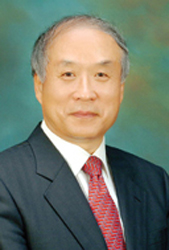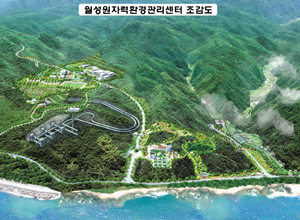KAST to Hold Roundtable on Spent Nuclear Fuel
'Korea needs to offer an academic rationale on the issue'


As Korea and the United States are set to begin negotiations on the revision of the Korea-U.S. Nuclear Cooperation Agreement, which will expire in March 2014, the construction of a facility for treating high-grade radioactive waste, including spent nuclear fuel is a thorny issue that has to be addressed and handled urgently.
Treatment or reuse of spent nuclear fuel from nuclear power plants containing high-grade radioactive substances that have the risk of being converted into nuclear weapons has become a very sensitive issue in the international political perspective. Management policies on spent nuclear fuel need to be worked out in consideration of such factors as safety, nonproliferation and future-oriented reactors reusing spent nuclear fuel, and the development of related technologies is a time-consuming issue to be handled through international collaboration.
As the accumulative amounts of spent nuclear fuel, exceeding 10,000 tons as of the end of 2008, must be addressed urgently, the Korean Academy of Science and Technology (KAST) will hold the 61st Roundtable on the theme "Spent Nuclear Fuel Treatment Technology and the direction of Policies" at the Seoul Plaza Hotel on Aug. 28.
KAST President Rhee Hyun-ku said in an invitation article, "The roundtable is designed to discuss our issue of spent nuclear fuel in the genuinely scientific and technological perspective with the goal of exploring technological solutions and suggesting the direction of policies." He expressed hope that the upcoming discussion would provide an opportunity for many experts to extend a helping hand in establishing policies on nuclear power.
KAST Vice President Park Won-hoon, ex-KAIST president, said KAST has held the roundtable with such topics as scientific facts about mad cow and countermeasures as well as pending national issues, including national water resources management and the four rivers.
"This roundtable will provide an opportunity to substantiate the Korea-U.S. Nuclear Cooperation Agreement from the scientific and technological perspective and discuss how to publicize spent nuclear fuel. We expect experts and members to provide keen concern and support in establishing policies related to nuclear power," he said.
Song Kee-chan, vice president of the Department of Nuclear Fuel Cycle Technology Development at the Korea Atomic Energy Research Institute (KAERI), will speak on the theme "Treatment of Spent Nuclear Fuel from the Energy and Science & Technology Perspective," while Chun Bong-keun, professor at the Institute of Foreign Affairs and National Security (IFANS), will give a lecture on the theme "Treatment of Spent Nuclear Fuel from the Nonproliferation and Energy Perspective."
The roundtable, to be chaired by KAIST Vice President Chang Soon-heung, a regular member of KAST, will be attended by Seoul National University emeritus Prof. Kim Chang-hyo, a regular member of KAST; Korea Radioactive Waste Management Corp. Director Min Gye-hong; KAERI Senior Vice President Chang Moon-hee; Seoul National University Prof. Hwang Il-soon; and Kyunghee University Prof. Hwang Joo-ho.
"The Korea-U.S. Nuclear Cooperation Agreement, which is a common concern of both IFANS and academia, needs to be backed up from the scientific and technological perspective. Currently, France, the United Kingdom, the United States and Japan are now allowed to treat spent nuclear fuel, but from an academic viewpoint, Korea can treat spent nuclear fuel on the condition that plutonium will not be extracted. Japan is expected to ask the United States not to allow Korea to treat spent nuclear fuel, saying Japan itself can do it instead of Korea."
In a related development, the public debate on the management of spent nuclear fuel is virtually delayed until next year. The delayed public discussion on the issue is inevitable since the government decided to give a preference to both laying a legal foundation and commissioning a study contract to an expert group.
The Ministry of Knowledge Economy (MKE) said on Aug. 6 that it decided to establish a legal foundation before the launch of the public debate on spent nuclear fuel since it is essential to secure the public trust and respect of the soon-to-be body on the public debate of the issue.
A measure on the revision of the Act on Radioactive Waste Management, proposed by Rep. Kim Ki-hyun of the Grand National Party in May, is pending at the National Assembly Knowledge Economy Committee.
The government originally planned to launch the public debate on the issue by forming a related committee in July, saying that construction of a high-grade radioactive waste treatment facility is urgently required due to the fact that the space for stockpiling spent nuclear fuel and other radwaste will run out in 2016, but it was abruptly delayed.
The government's nearly two decade-long effort to build a low- and mid-grade nuclear waste storage facility repeatedly ended in failure, mainly due to the prevailing not-in-my-backyard syndrome, before recently finding a solution ¡ª the construction of a facility near Gyeongju, which is now under way. In particular, the so-called Buan Incident in 2003 apparently provided a bitter lesson as the government's moves to push a projected nuclear waste site on Anmyeon-do Island on the West Coast touched off violent, months-long clashes between nearby residents and antinuclear activists against public forces. With the latest Buan Incident in mind, the government has exerted itself to find a solution in a more transparent and democratic manner, as the temporary space for keeping nuclear waste is running short, particularly low- and mid-grade radioactive waste.
A special law was legislated to specify the coverage scope of a new nuclear waste storage facility to low- and mid-grade waste, not spent nuclear fuel, a move designed to wipe out misgivings about safety.
The Radioactive Nuclear Waste Disposal Facility Site Selection Committee was formed to select a nuclear waste storage site in a transparent and fair manner.
The special law requires residents' consent through voting as the prerequisite condition of becoming the planned nuclear waste storage site. Disclosure of information in connection with holding debates and explanation sessions is stipulated in the law. nw
KAST President Rhee Hyun-ku
A bird-eye view of a low- and medium-grade radwaste treatment facility, now under construction in Yangbuk-myeon, Gyeongju City.
3Fl, 292-47, Shindang 6-dong, Chung-gu, Seoul, Korea 100-456
Tel : 82-2-2235-6114 / Fax : 82-2-2235-0799